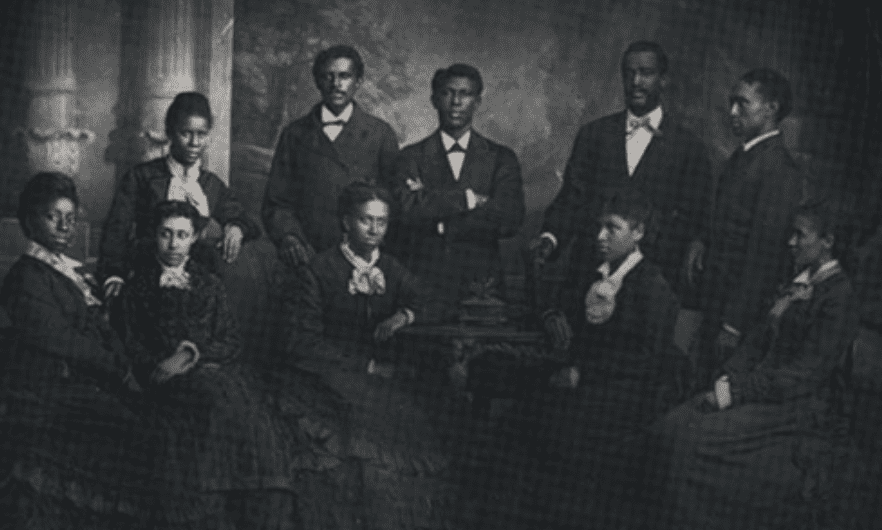The history of Negro spirituals is deeply rooted in the experiences of African Americans in the United States, particularly during the period of slavery and its aftermath. These spirituals represent the intersection of African, Christian, and American influences. Enslaved Africans brought their diverse musical and religious traditions to the Americas. These traditions included communal singing, call and response, rhythmic drumming, and complex polyrhythms. Some elements of African music and spirituality would later merge with Christianity to create spirituals. During the 18th century, African slaves who had been forcibly converted to Christianity began incorporating their own cultural elements into Christian hymnody. They created a distinct form of religious expression that blended Christian themes with African musical and spiritual elements.
Enslaved African Americans used spirituals as a means of coping with the harsh conditions of slavery. These songs often contained coded messages about freedom and escape routes, providing hope and direction for those seeking to break free. Many slaves embraced Christianity, and spirituals became a crucial part of their religious expression. These songs often drew upon biblical stories, emphasizing themes of deliverance, salvation, and the promise of a better life in the afterlife. Spirituals played a significant role in the Underground Railroad, a network of secret routes and safe houses that helped slaves escape to freedom. Certain spirituals contained hidden messages and directions for escape, providing essential guidance to those seeking liberty.
In the 19th century, scholars and collectors, such as John Wesley Work II and Harry T. Burleigh, began transcribing and documenting spirituals. Their work helped preserve and promote the music. After the Civil War and the end of slavery, spirituals continued to be an important form of religious expression for African Americans. They also played a role in the formation of gospel music. Negro spirituals had a significant impact on various music genres, including gospel, blues, and jazz. The emotional and improvisational qualities of spirituals influenced the development of these musical forms. Spirituals were used during the Civil Rights Movement to inspire and uplift participants during protests and marches. Songs like “We Shall Overcome” drew from the tradition of spirituals and became anthems for the movement.
Negro spirituals continue to be performed and celebrated today. They are an essential part of African American cultural heritage and are performed in various contexts, including church services, concerts, and cultural events. The history of Negro spirituals reflects the resilience and creativity of African Americans in the face of slavery and oppression. These songs have left a lasting impact on American music and culture and continue to be a source of inspiration and cultural pride.



